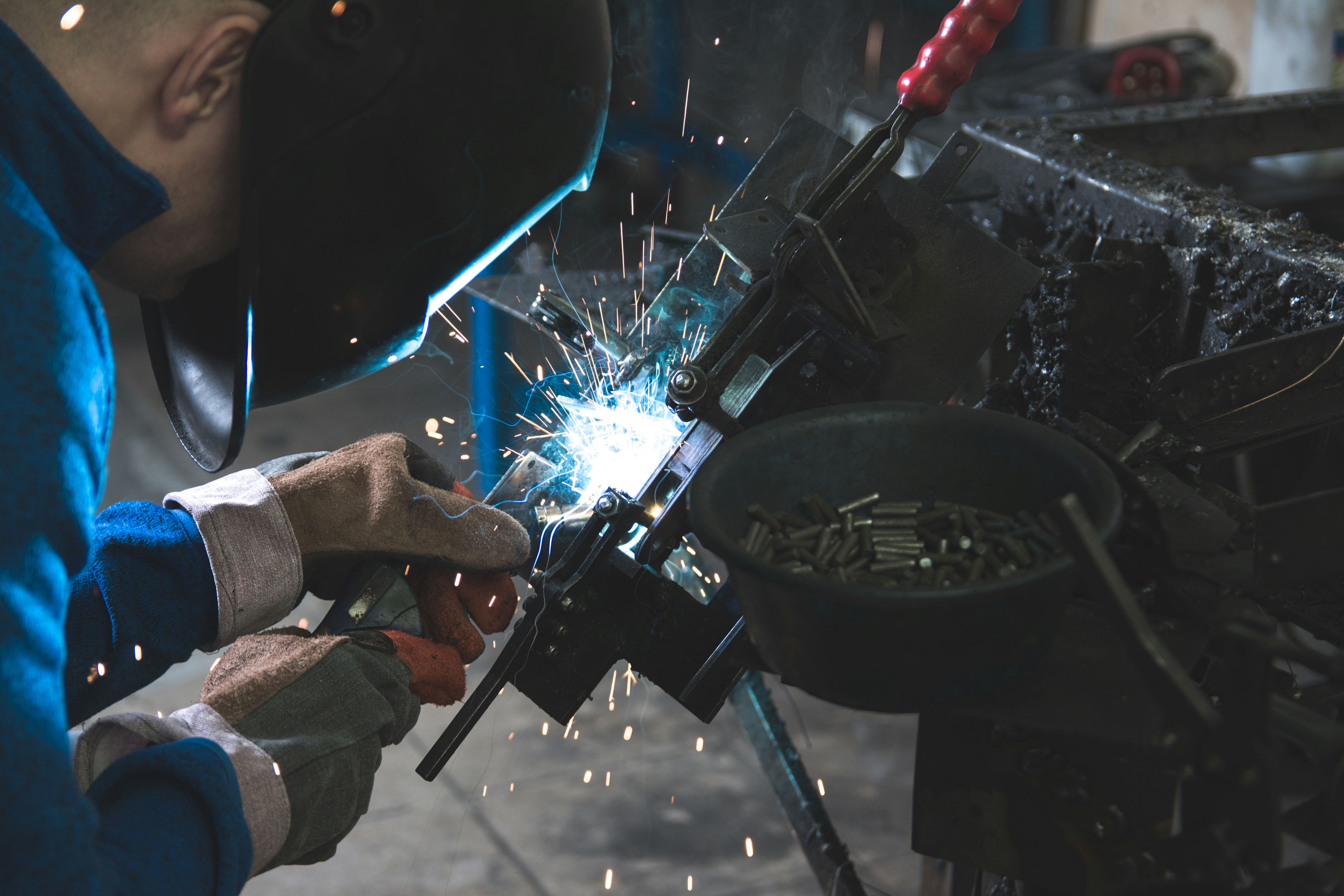Beginner's Guide to Welding in 2025: Start Your High-Paying Career
If you’re unsure about your career path and don’t know which job is right for you, welding may be your answer. Welding offers high pay, job stability, and excellent growth opportunities—all without the need for a college degree. With relatively short training times and high demand for skilled workers, welding can offer you a rewarding career in just a few months. Here’s everything you need to know.

Welding Your Way to Success: A Guide to Thriving in the Industry
Welding is a skilled trade that offers exciting career opportunities and the chance to work on diverse projects across various industries. From constructing skyscrapers to fabricating intricate machinery, welders play a crucial role in shaping our modern world. If you’re considering a career in welding or looking to enhance your skills, this comprehensive guide will provide valuable insights on how to become a successful welder.
Understanding the Welder’s Role
Welders are skilled craftsmen who use specialized equipment to join metal components through the application of heat and pressure. Their work is essential in industries such as construction, manufacturing, aerospace, and automotive. A successful welder possesses a combination of technical expertise, attention to detail, and physical stamina.
Acquiring the Necessary Skills and Education
To embark on a welding career, you’ll need to acquire the right skills and education. Many vocational schools, community colleges, and technical institutes offer welding programs that cover various techniques, safety protocols, and industry standards. These programs typically include hands-on training and classroom instruction, preparing you for entry-level positions.
Mastering Different Welding Techniques
Successful welders are proficient in multiple welding techniques, each suited for specific applications. Some common methods include:
- Shielded Metal Arc Welding (SMAW)
- Gas Metal Arc Welding (GMAW)
- Gas Tungsten Arc Welding (GTAW)
- Flux-Cored Arc Welding (FCAW)
By mastering these techniques, you’ll increase your versatility and employability in the welding industry.
Prioritizing Safety and Certification
Safety is paramount in welding, and successful welders prioritize it above all else. Familiarize yourself with proper safety equipment, including welding helmets, gloves, and protective clothing. Additionally, obtaining industry-recognized certifications, such as those offered by the American Welding Society (AWS), can demonstrate your expertise and commitment to safety standards.
- Learn proper ventilation techniques
- Understand electrical safety protocols
- Master fire prevention measures
- Develop ergonomic work habits to prevent strain injuries
- Stay updated on the latest safety regulations and best practices
Gaining Experience and Building Your Portfolio
Experience is crucial for success in the welding industry. Start by seeking entry-level positions or apprenticeships to gain hands-on experience. As you progress, document your work through photographs and project descriptions to build a comprehensive portfolio. This will showcase your skills and help you secure more advanced positions or freelance opportunities.
Embracing Continuous Learning and Specialization
The welding industry is constantly evolving, with new technologies and techniques emerging regularly. Successful welders embrace continuous learning, attending workshops, seminars, and advanced training courses to stay ahead of the curve. Consider specializing in high-demand areas such as underwater welding, aerospace welding, or pipeline welding to increase your earning potential and career prospects.
Exploring Career Opportunities in Welding
The welding industry offers diverse career paths and opportunities for advancement. Here’s a comparison of some popular welding career options:
| Career Path | Average Salary | Work Environment | Specialization |
|---|---|---|---|
| Construction Welder | $44,000 - $62,000 | Outdoor/Indoor | Structural welding |
| Manufacturing Welder | $38,000 - $55,000 | Indoor | Production welding |
| Pipeline Welder | $60,000 - $90,000 | Outdoor | High-pressure pipe welding |
| Underwater Welder | $70,000 - $120,000 | Underwater | Offshore welding |
| Aerospace Welder | $55,000 - $80,000 | Indoor | Precision welding |
Note: Salary information provided are estimates and may vary based on location, experience, and employer. It is encouraged to conduct independent research for more accurate and up-to-date salary information.
In conclusion, becoming a successful welder requires a combination of technical skills, dedication to safety, continuous learning, and practical experience. By following this guide and staying committed to your craft, you’ll be well-positioned to forge a rewarding career in the welding industry. Remember that success in welding, like in any profession, comes with time, practice, and a passion for excellence.
The shared information of this article is up-to-date as of the publishing date. For more up-to-date information, please conduct own research.




